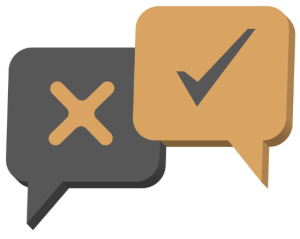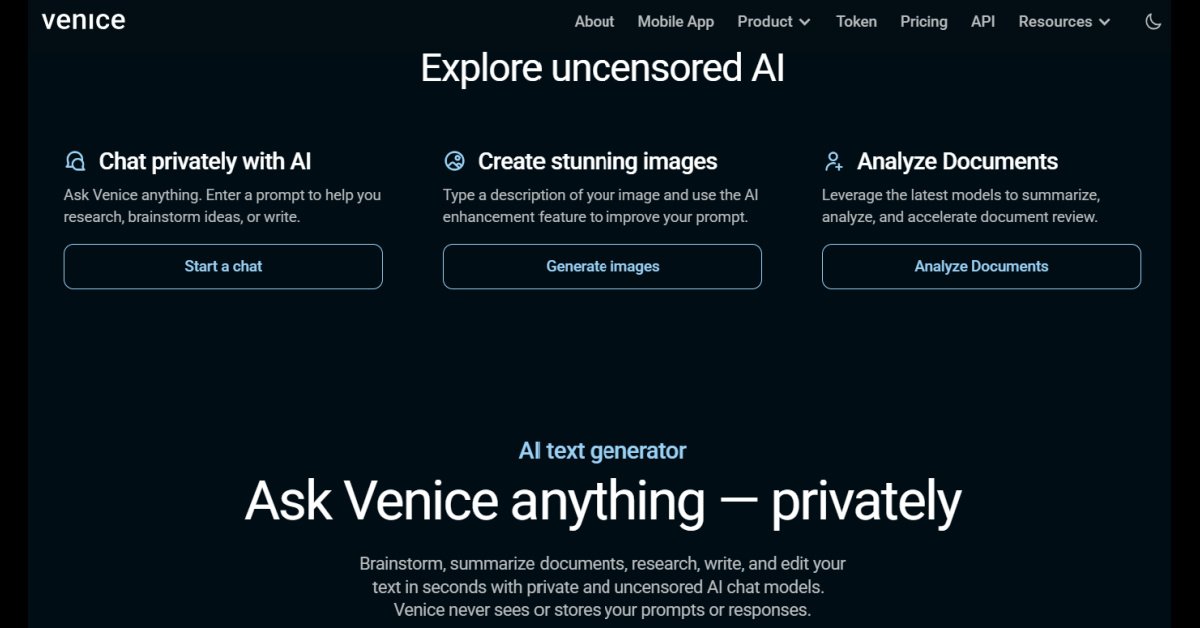By Jeff Domansky
Overview

Venice AI promises to be your life raft if you’re a journalist, writer, researcher, or content creator drowning in open tabs. This AI research tool automates and streamlines research. It can cut through the noise of the internet by summarizing, extracting, and organizing information faster than you can manually.
That’s part of what you want in an online research tool.
Venice AI will also give uncensored answers and images that mainstream AI tools like ChatGPT, Gemini and Copilot can’t or won’t!
The platform uses advanced AI models (likely based on OpenAI’s GPT technology or a proprietary equivalent) to help users sift through articles, PDFs, and reports, distilling the most relevant insights into quick summaries. But here’s the real question: Does Venice AI help you research more effectively, or is it just another AI tool that sounds great in theory but falls flat in execution? Let’s dive in.
Key Features for AI Research
Venice AI is full-featured, and I particularly like its willingness to answer without censoring responses, its provision of sources and several of its integrated tools, such as AI writing assistance and browser integration. Here are the key features of this AI research assistant:
- AI-Powered Summarization – Instantly condenses long-form content into key takeaways, helping you focus on what matters.
- Content Extraction – Pulls relevant information from articles, PDFs, and reports, eliminating the need to copy-paste everything manually.
- Smart Note-Taking – Allows users to highlight, annotate, and organize research materials without the chaos of dozens of browser tabs.
- Context-Aware Search – Moves beyond keyword-based search by understanding the context of your query, aiming for more insightful results.
- Research Organization Tools – Helps structure your findings into outlines and themes, saving time when drafting reports or articles.
- Collaboration & Sharing – Enables teams to share insights, notes, and research findings in a structured format.
- Source Attribution – Keeps track of citations, a crucial feature for journalists and academics who must fact-check rigorously.
- Multi-Format Support – Works with web pages, PDFs, and text-based files, making it adaptable to different research needs.
- AI Writing Assistance – Uses your research to help generate structured drafts, leaping from research to writing easily.
- Browser Integration – Designed to work within your workflow, reducing research and content creation friction.

Pros & Cons
What Venice AI Gets Right as an AI Research Tool
- Huge Time-Saver – If you spend hours gathering and organizing research, Venice AI can save significant time by summarizing key points instantly.
- More Organized Research Workflow – Instead of juggling endless notes and tabs, you get a structured, AI-assisted system to keep everything in one place.
- Useful for Writers & Journalists – Helps bridge the gap between research and writing by suggesting structured outlines and relevant content snippets.
- Doesn’t Lose Sources – Unlike AI tools that summarize without citations, Venice AI retains source attribution, making fact-checking easier.
- Beginner-Friendly Interface – The platform is well-designed and doesn’t require a steep learning curve, making it accessible to non-tech-savvy users.
Where It Falls Short
- AI Summaries Can Be Imperfect – Like all AI tools, it can misinterpret context or introduce bias, so human oversight is still needed.
- Free Tier Is Limited – While there is a free option, power users will likely need the paid plan for full functionality.
- Internet-Dependent – If you need an offline research tool, this isn’t it—Venice AI requires an internet connection to function.
- May Not Replace Deep Analysis – It’s great for surface-level research, but users working on deep investigative journalism or academic papers may still need traditional research methods or alternate tools such as Perplexity.
Pricing
Venice AI offers a free starter plan with limited features, making it easy to test the platform to see if it works for you. The full-access Pro plan costs $18 monthly, unlocking more advanced research and AI-assisted tools. While reasonably priced for some users, heavy researchers should consider whether the paid tier provides enough extra value over the free version before upgrading.

Overall Rating: 4.2/5
Venice AI does a lot right—it’s a helpful tool when you need to synthesize large amounts of information quickly, making it a valuable asset for journalists, researchers, bloggers and content creators. However, it relies on AI-generated summaries, so you’ll still need to verify outputs for accuracy. The free tier may not be enough for serious research needs.
Is Venice AI Worth It?
If your work involves heavy research and content synthesis, Venice AI can save you hours—especially if you’re a journalist gathering key points from many lengthy sources or a writer looking to turn research into structured content. The AI-powered summarization and organization features are genuinely helpful, particularly if you struggle with managing research efficiently.
That said, it’s not a magic bullet—AI can’t always capture nuance, and you’ll still need to fact-check and fine-tune its output. You might be disappointed if you’re looking for a completely hands-free research assistant. But if you see AI as a productivity tool rather than a full replacement for critical thinking, Venice AI is a strong contender in the AI research market.
Venice AI will go where some AI tools won’t in its answers and AI image generation. Do I recommend it? Yes, if you want uncensored content and are willing to work alongside the AI rather than expecting it to do all the heavy lifting.
Looking for other top-notch AI research tools? Check out this AI Marketers Directory page.











